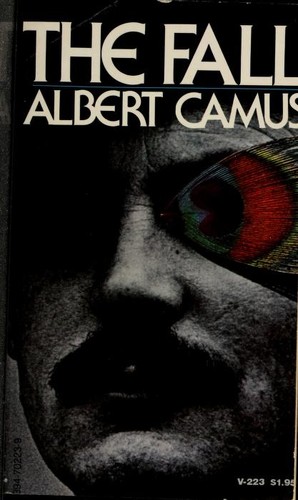Albert Camus, in his first work of fiction after The Plague, chose a subject eminently worthy of his supreme gifts: the conscience of modern man in the face of evil. Masterful in style and form, the narrative of The Fall is at once elegant, mordandt, brilliant with aphorism and paradox.
In a shady bar in Amsterdam, the man who does the talking in The Fall is indulging in a calculated confession. he recalls his past life as a respected Parisian lawyer, a pleader of noble causes, secure in his self-esteem, privately a libertine, yet apparently immune to judgement - the portrait of a modern Man. The irony of the recital predicts the downfall. Inescapable, it comes in the narrator's intense discovery, in the space of one terrible and unforgettable instant, that no man is innocent and no man may therefore judge others from a standpoint of righteousness.
(back cover)


